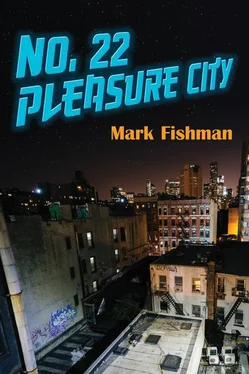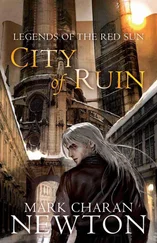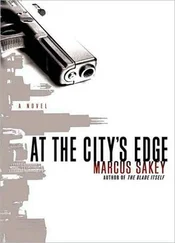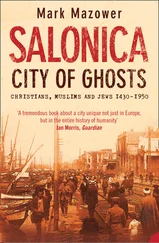“No, I’ll do it.”
The fat man stacked the plates on the empty vegetable platter, hooked the tip of his thick index finger into the mouth of the beer bottle and made his way back into the house with everything but the condiments. He came back for the condiments, the napkins, the empty glasses, and before returning to the house he turned around and said: “Maybe you’d like some more water?”
“All right,” Aoyama said.
There was a quiet interval lasting five minutes during which Aoyama finished his cigarette before the fat man came back with a steaming Bialetti coffee maker and a trivet, two demitasse cups and saucers, two coffee spoons, and a bowl of raw sugar cubes. He put the coffee maker on the trivet, laid out the demitasse cups in their saucers and the coffee spoons beside them, and winked in a friendly way at Aoyama. He went back into the house.
Waiting for the fat man, Aoyama looked at the things arranged in front of him, picked up the spoon that lay next to his cup and saucer and put it in his mouth and stared at the slanting roofs of houses beyond the chain-link fence surrounding the backyard. His gaze returned to the coffee maker, moved to the right and came to rest on the bowl of sugar. He smiled at the bowl as if it had smiled at him, took the spoon out of his mouth, looked at it, then put it down.
It was a pleasant break in the routine, he thought. It was more than a break, but now he was sleepy, and so he was glad to have the coffee in front of him. He wanted to pour himself a cup but he had to wait for the fat man, and at the same time he was wondering what was taking him such a long time with dessert because he really needed the coffee, he was counting on drinking a few cups of strong, black coffee to get him up out of the chair and on his way to meet Eto.
Aoyama reached into the pocket of his raincoat and found the crumpled pack of cigarettes wedged between parts of his disguise. The pack was almost empty. He decided to wait for another smoke until after dessert.
The fat man appeared with a dessert tray and a pitcher of sparkling water with ice. He walked cautiously, as always paying close attention to where he was going, and he glanced up from time to time at the table. When a single stride separated him from his goal, the fat man looked proudly at Aoyama. He set the tray down, put the glass of water in front of his guest, and then made a sweeping gesture at the dessert.
“Plum and star anise fool,” the fat man said. “I made them myself.”
“They’re wonderful,” Aoyama said genuinely.
“You know what a fool is?”
Aoyama grinned but didn’t answer him.
“Beat two egg yolks in cream, then fold in puréed plum infused with star anise,” the fat man explained. He handed Aoyama a dessert spoon and napkin from the tray.
Aoyama looked at the fat man with a great deal of respect, congratulated him. The fat man accepted the praise. Aoyama lifted the dessert spoon and plunged it into a layer of the fool and tasted it. The fat man sat down.
“That’s something, it’s really delicious,” he told the fat man. “You’re a genius in the kitchen.”
“It’s not the only kind of fool there is,” the fat man replied with a businesslike voice. “You can use all sorts of fruit.”
Aoyama took another spoonful, and the creamy, refreshing fruitflavored dessert rolled down his throat.
“That’s poetry,” he said.
“Now you’re exaggerating.”
The fat man put the tip of his spoon into the fool and turned it slowly, taking his time, until he had a dollop that he put in his mouth where his alert taste buds evaluated the flavors.
“Maybe you’re not,” the fat man said.
When they finished, the fat man poured coffee for them, handed Aoyama the sugar bowl. Aoyama put a lump of cane sugar in his cup and stirred it. The fat man put three sugar cubes in his coffee, stirred it and drank it down in a gulp.
They were walking quickly now, several blocks away from Jackson, and Pohl followed them when they turned onto Winthrop, a narrow street resembling an alley because of its cobblestones and high walls of apartment buildings on either side. They were close to the river and he could smell the blend of dampness and pollution in the mild night air. The woman’s heels clattered against the sidewalk.
It was all very calm on the surface but the undercurrent was an unpleasant rushing of noise on the order of a profound disequilibrium in the thinking process of Pohl’s mind. And then his mind was a lens focused on time and he was seeing through a tunnel packed tightly with the urgency of minutes that separated him from this woman who might be Angela, staggering alongside Burnett on Winthrop Street.
Pohl stopped in his tracks. He felt pressure in his chest that had the weight of a bus behind it. It wasn’t the pressure of a heart attack but the breaking down of the machine that pushed him forward to follow Burnett and the woman because he was afraid of what he’d find out if he caught up with them and he was afraid of how he’d feel if he didn’t. His determination to know whether or not it was Angela drove him on.
The couple slowed down and stopped at the end of Winthrop at the intersection of Winthrop and Front Street, which ran parallel to the river, and it looked as though Burnett was trying to convince the woman not to move, to stay put, and he laid his hands on her shoulders, standing so close to her that she couldn’t turn away from him.
There was a single streetlight on the far side of Front throwing light in a wide arc on the concrete footpath above the river and down below it on the surface of water slapping against the embankment. The light didn’t quite reach them, they were silhouetted by the glow behind them on the opposite side of the street. And since the light didn’t reach them, the light didn’t fall anywhere near Pohl, and he knew he was just another part of the darkness at this end of Winthrop and that they couldn’t see him.
Burnett’s silhouette lit a cigarette and Pohl saw his face, but the woman’s face was in profile the brief instant the lighter was lit and he couldn’t make out more than the shape of her nose. It might have been Angela. But it didn’t make sense to see her drunk. As long as he’d known her she’d never had more to drink than she could handle.
The woman was leaning against the wall near the dark side entrance of a building that overlooked the river. The wall kept her from falling down. Burnett pressed his lower body against her belly, keeping her from moving in any direction. The hand holding the cigarette waved slowly over her head. Pohl watched the glowing end of it move in wide circles in the darkness.
A tugboat or a city fireboat went by with its engine running almost silent on the river flowing perpendicular to Winthrop and a bright light mounted in the forward part of it, very near the upper end of the bow, swept the two opposite sides of land. The beam of light also swept the two figures at the end of Winthrop, and Pohl saw Burnett’s hand lifting the hem of the woman’s skirt, baring her thigh, and she raised her leg to complement the motion and pressed her knee against him. The spotlight went past them and disappeared to shine on the other side of the river. Pohl blinked and saw nothing but orangeyellow spots before his eyes.
This time he was waiting for the light, concentrating at the place where the light would shine, and when it was shining there he saw Burnett leaning against the woman and gripping her neck with his hand and pushing her head uncomfortably backward against the brick wall of the building.
The light kept moving until it was on its way to the other side of the river, and at the same time that it left them he heard the woman’s muffled scream and saw the silhouette of Burnett’s hand and the glowing tip of the cigarette and the woman, using her last ounce of strength, shoving the hand holding the cigarette so that it flew away from her face.
Читать дальше












